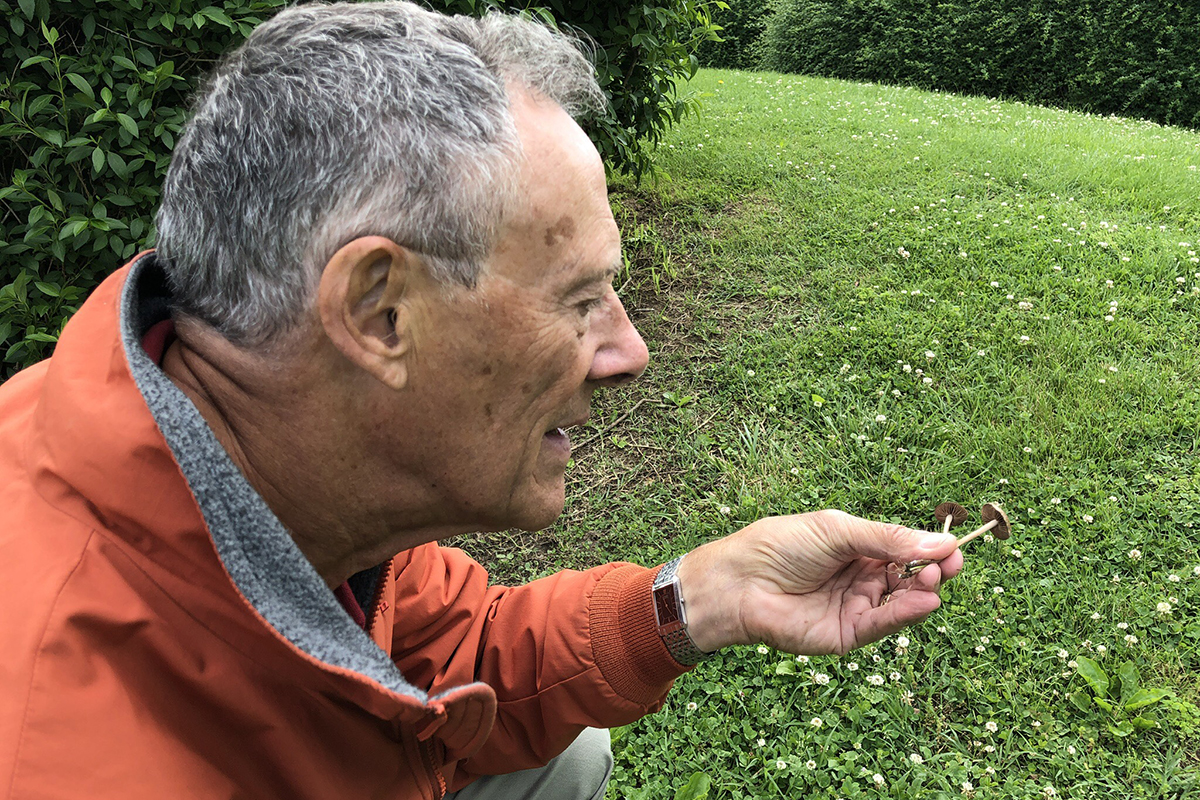Maynard Wheeler ’57

Mention mushrooms and most people think of food. Maynard Wheeler ’57 thinks of the future of biodegradable building materials, environmental waste cleaners and alternative medicine. “Mycelia can digest cigarette butts much cheaper than chemicals,” he says. “And then there’s mycofabrication, using mycelia networks to build supporting structures.”
The semiretired ophthalmologist-turned-amateur mycologist has spent the past 16 years studying the amazing attributes of fungi. “Someone once told me that when you get old you should learn a new language,” he says. “Mushrooms are certainly a new language.”
More than a language, mushrooms have become the 79-year-old’s lifestyle. Wheeler attends regional mushroom conferences to meet up with fellow mycophiles and is president of the Montshire Mycology Club, located in the Sunapee area of New Hampshire where he lives with his wife. “It’s a whole subculture,” he says, and one he heartily embraces.
From spring through late fall, Wheeler leads foraging forays through the woodlands, including the Fells Historic Estate & Gardens in the foothills of the White Mountains. Possessing an almost intuitive sense for spotting markers in the vegetation or in the placement of trees in the landscape, Wheeler urges his group to peer at the edges of rain puddles or turn over decaying leaves as they search. On good days, they find Caesar’s amanita, oysters, puffballs, lion’s mane, black trumpets, chanterelles and turkey tails. “Sometimes at the end of the walk we have a mycophagy, which is myco, mushroom, and phagy, eating,” he explains. “It’s really quite social.”
Mushroom hunting both keeps Wheeler in good physical shape and feeds his intellectual curiosity. “This hobby is about lifelong learning,” he says. “We live in this environment; we might as well learn from it.” Honing skills he first developed in pre-med biology class at Dartmouth College, Wheeler brings a decidedly scientific approach to his endeavors. He meticulously photographs, catalogs and studies the thousands of specimens he has collected over the years. At a little table in his family room, he says, he carefully inspects his discoveries through the same microscope that got him through medical school at Columbia. He also makes a point of knowing all of the fungi’s proper names. “Every year I have to re-memorize the Latin names of the mushrooms,” he says. “At my age, I forget them over the winter.”
Wheeler has spent his life helping others see more clearly — as a guide, mentor and doctor. More than 40 years ago, he opened Connecticut’s first pediatric ophthalmology practice, a new sub-specialty designed to treat children afflicted with vision and eye muscle impairments. In 1980, he broadened his outreach, volunteering for Helen Keller International, work that spanned a decade and included biannual travel to Peru to combat the causes and complications of blindness. Wheeler has a deep and long connection to the South American country, having also spent two years there as a physician in the Peace Corps. (He was first exposed to Peru by fellow Exonian Fred Truslow ’57, who kept Peruvian artifacts in their Dunbar dorm room.)
Wheeler made his first attempt at retirement last November but was drawn back in by colleagues who cited his specialized knowledge of how eye muscles work. “It’s hard to give up on helping people see,” he says. As for mushroom foraging? The hunt never ends. “There’s a choice edible mushroom called hen of the woods, which I’ve never actually found myself and it’s as big as two large handfuls,” he says. “It would be nice to find that one.”